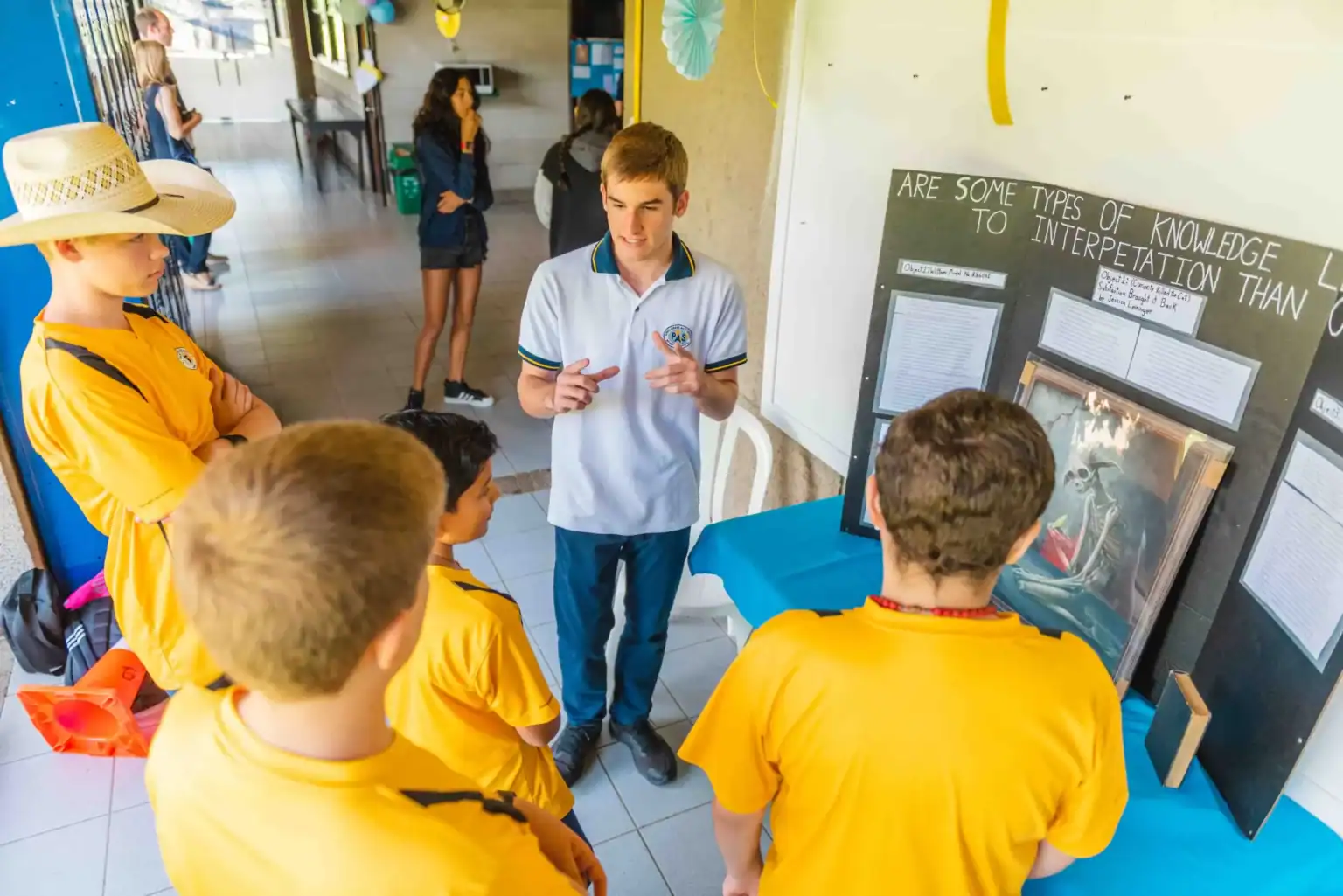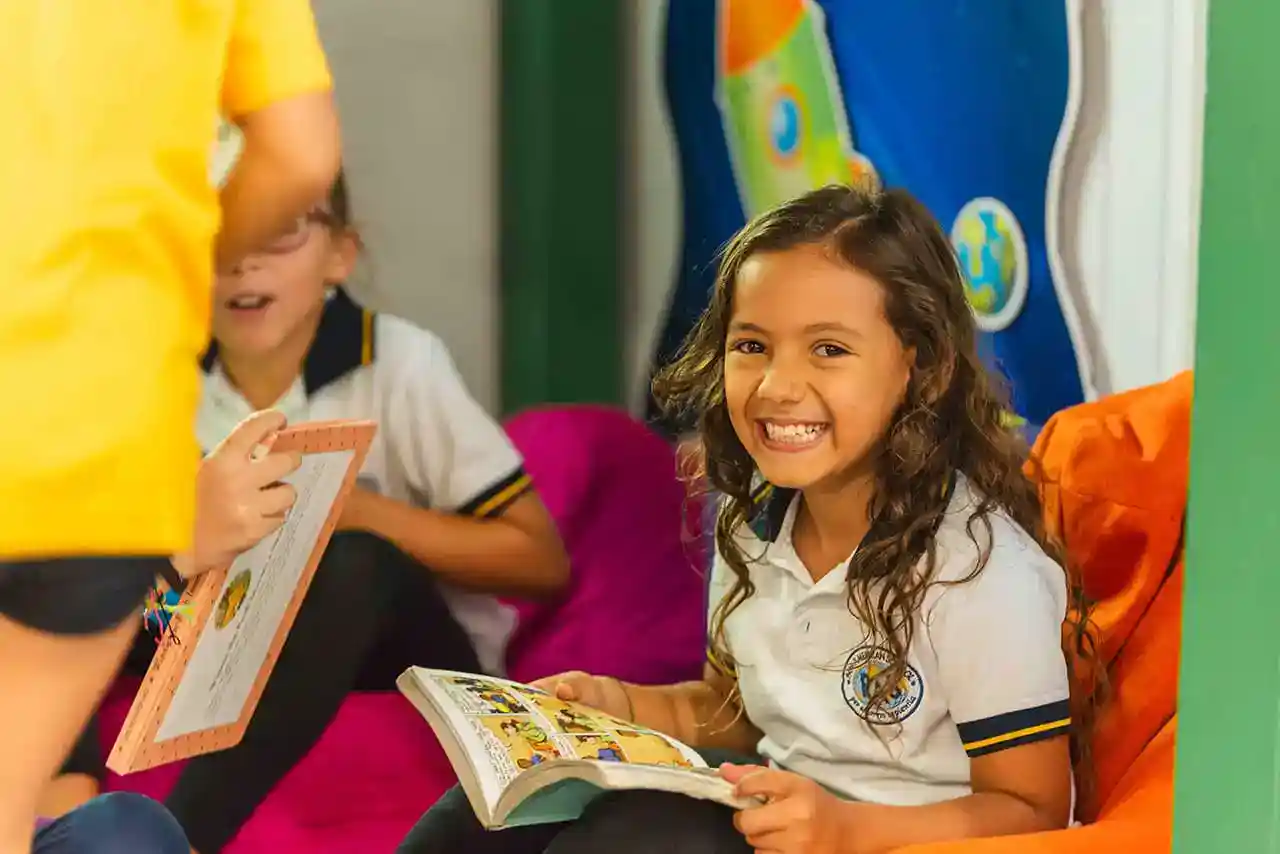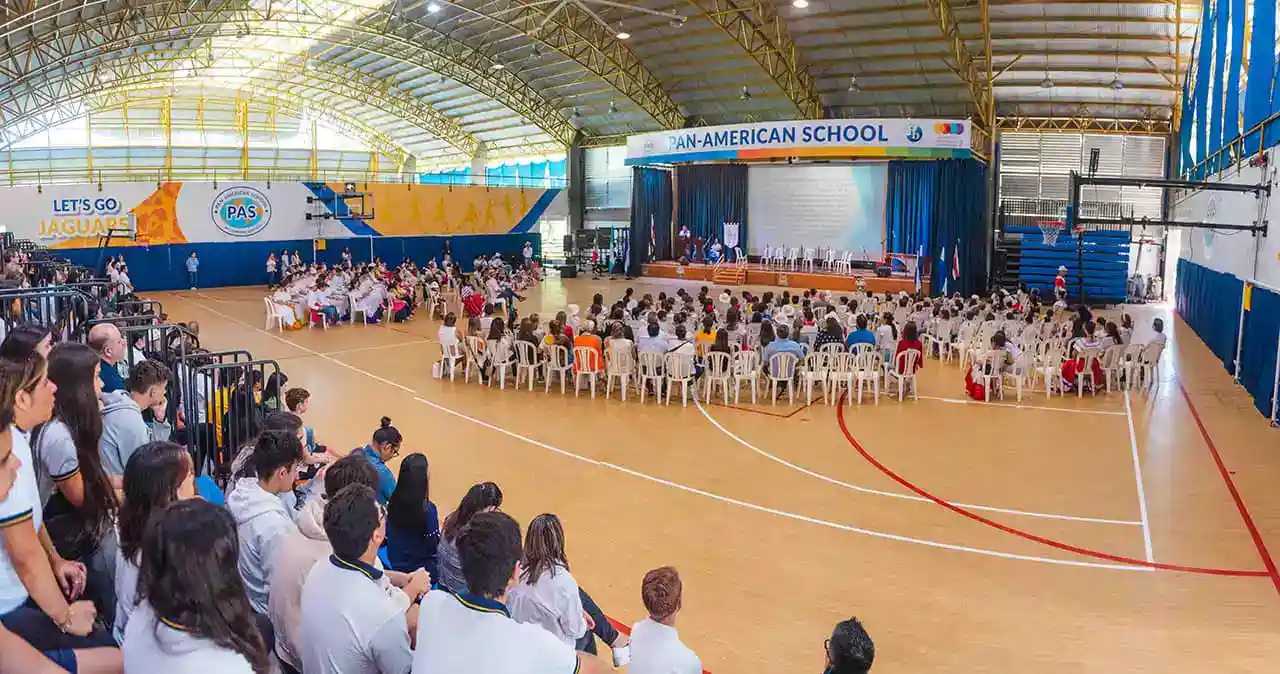
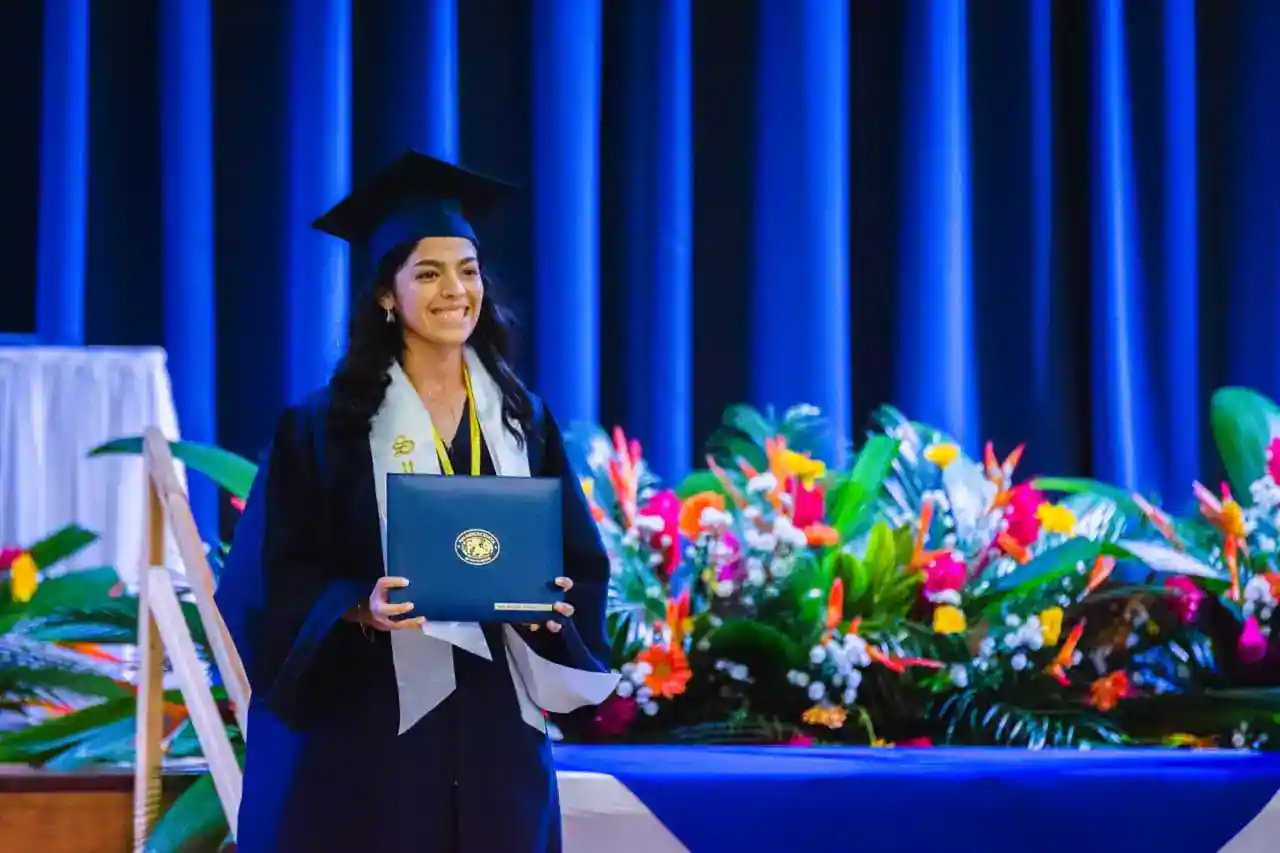

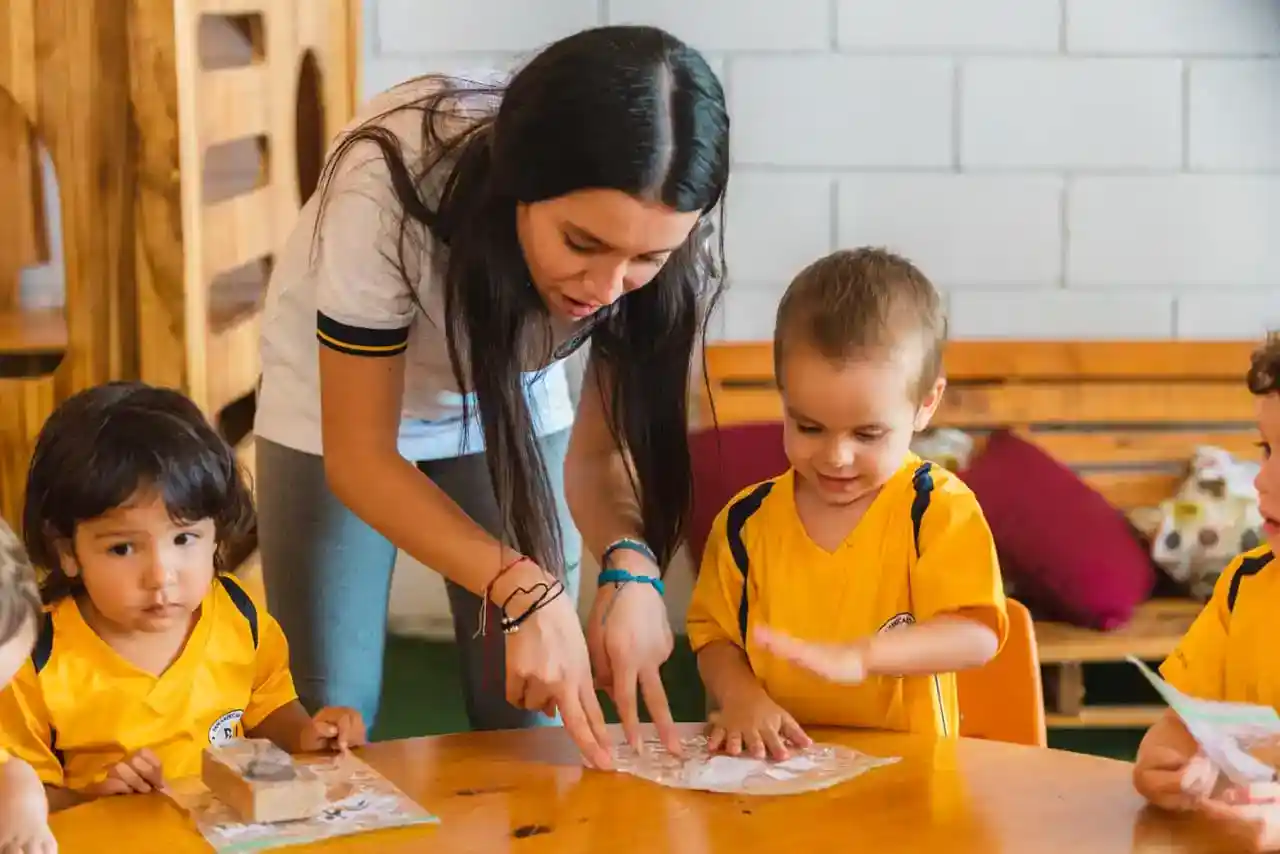
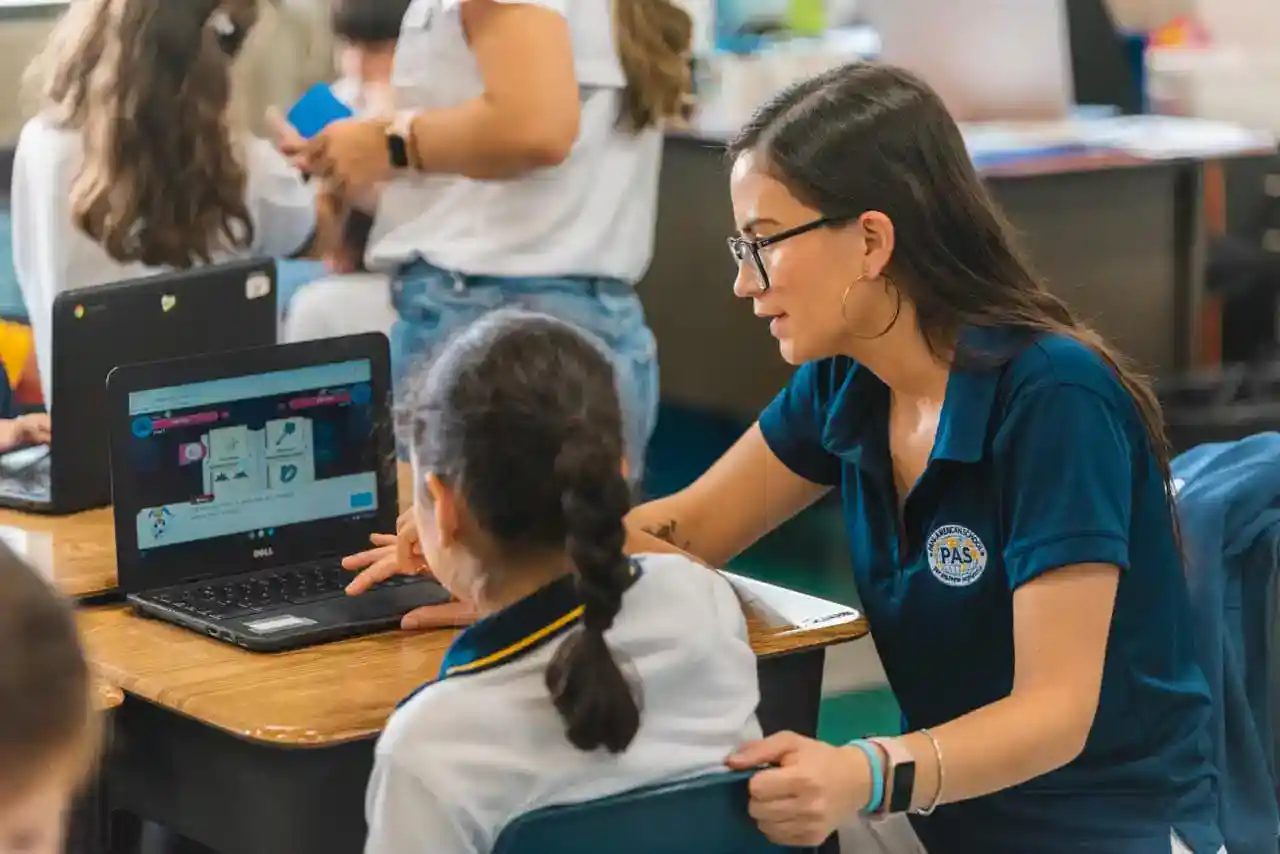
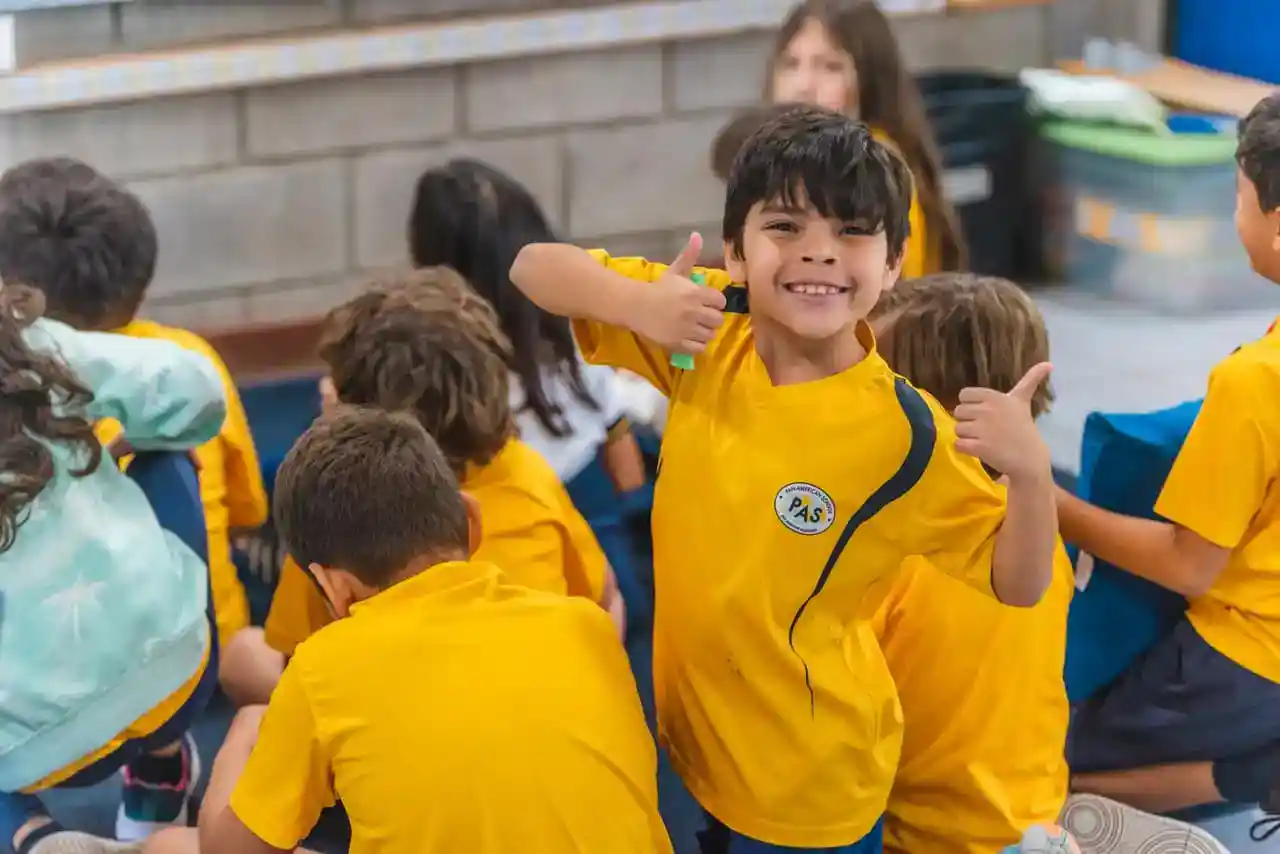
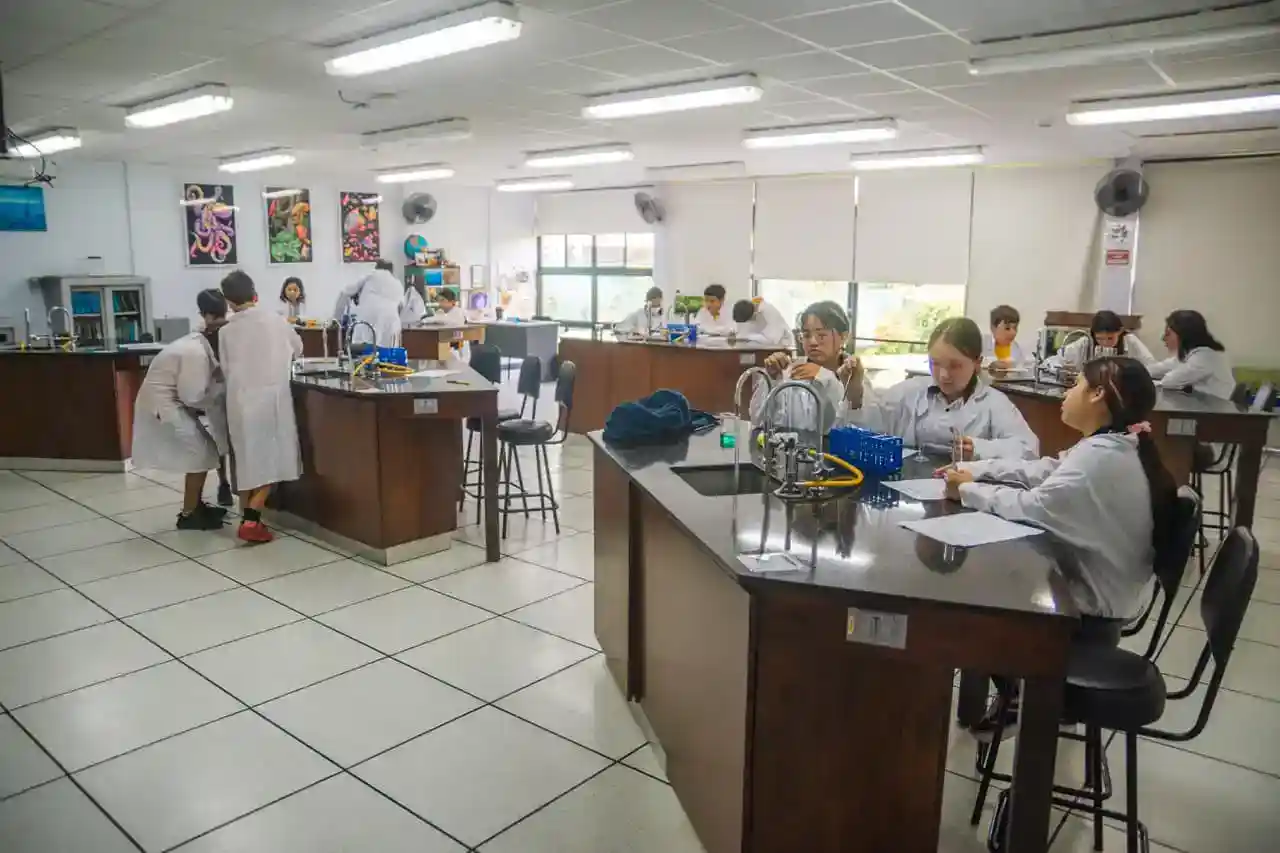
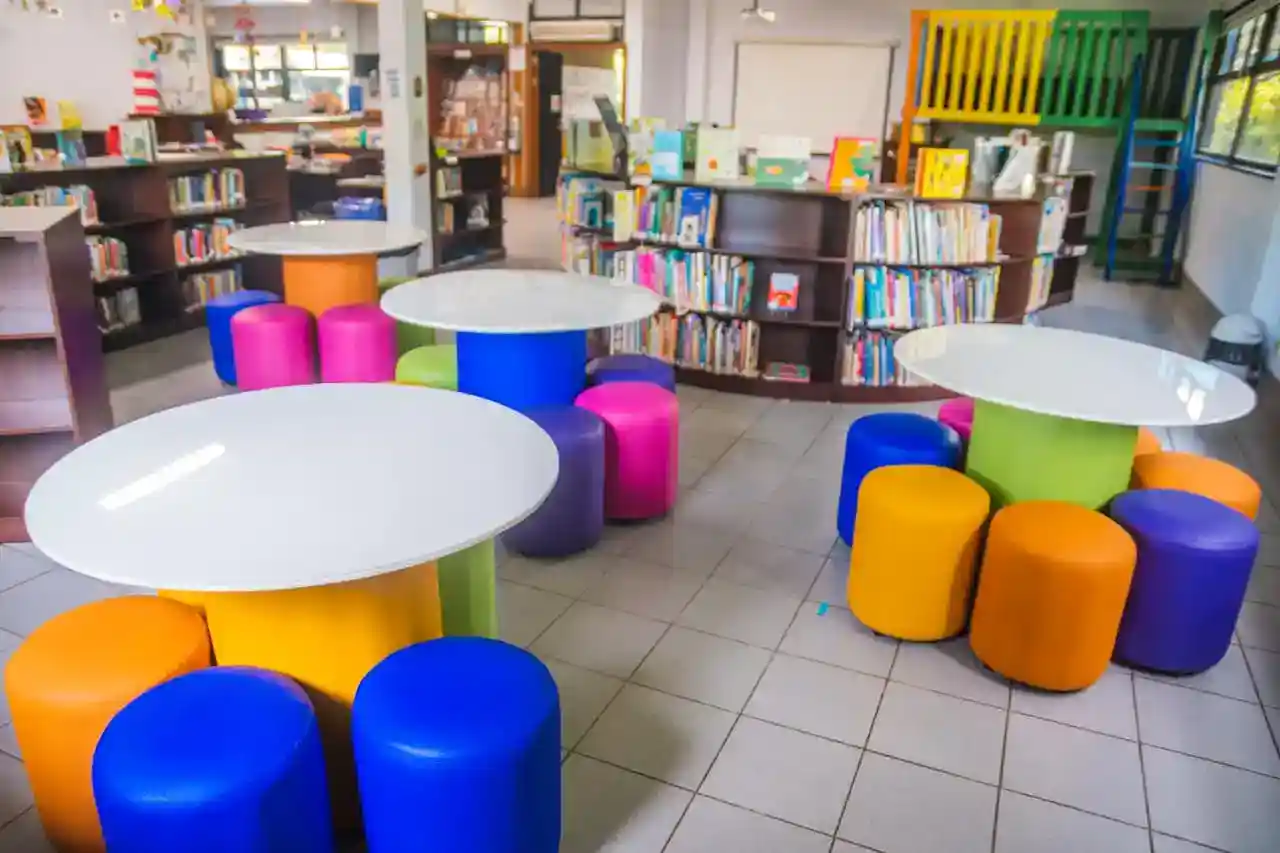
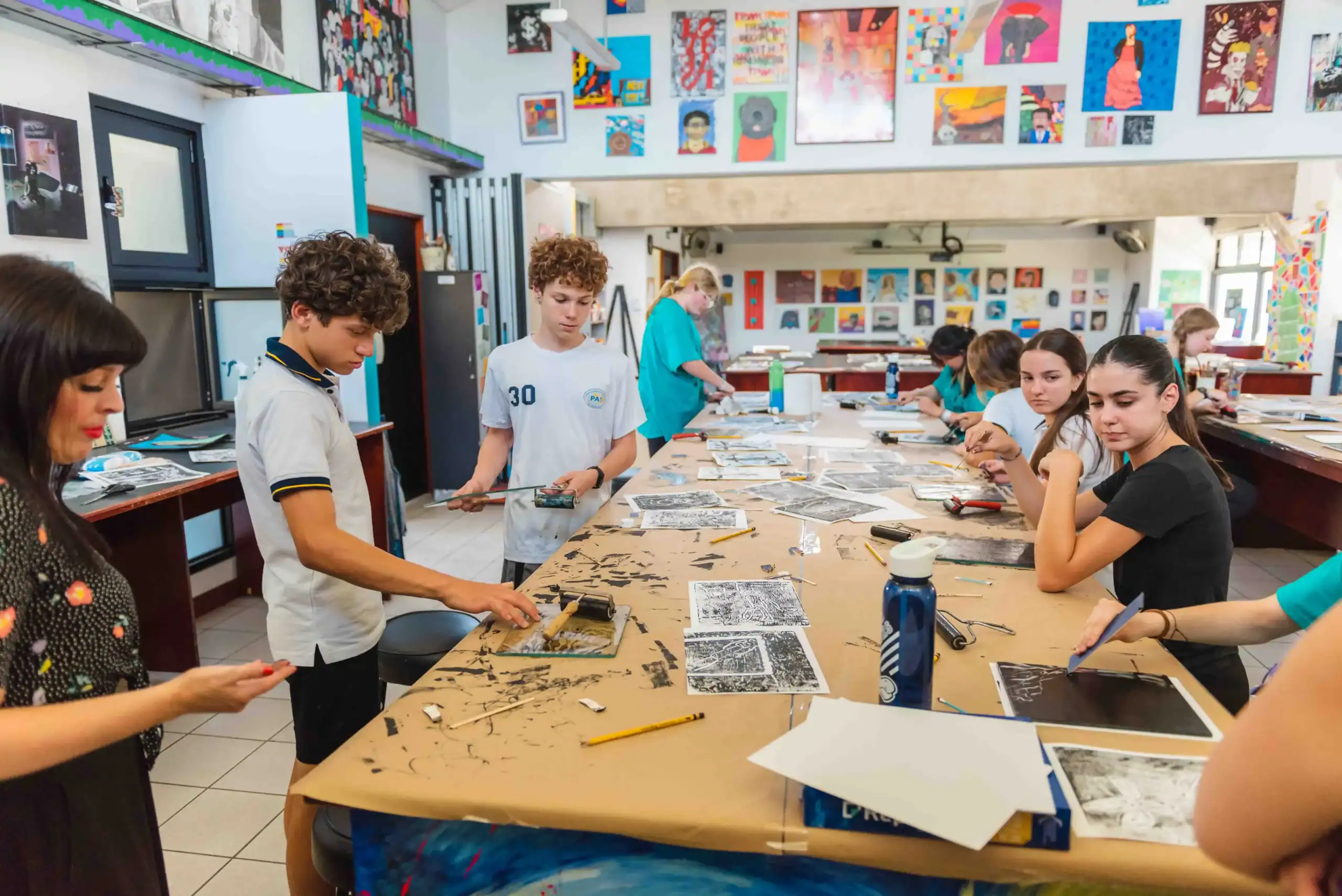

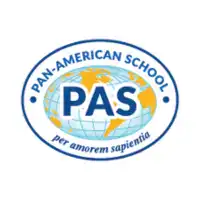
Pan-American School
Hoogtepunten
- IB-curriculum van wereldklasse in Costa Rica
- Nadruk op duurzaamheid en ecologie
- Tweetalige Spaans/Engelse immersie
Overzicht
Onze schoolmissie, visie, filosofie en de betrokkenheid van het personeel, evenals ons niet-selectieve onderwijsprogramma, bieden gepersonaliseerde en geïndividualiseerde aandacht voor de behoeften van elke leerling en een evenwichtige leeromgeving die gericht is op het ontwikkelen en afstuderen van evenwichtige, verantwoordelijke wereldburgers. Ons brede en rigoureuze curriculum richt zich op vaardigheidsontwikkeling, een uitgebreid sociaal en emotioneel ondersteuningssysteem, diverse kunst-, ontwerp- en lichamelijke opvoedingsprogramma's en een unieke focus op service en mondiale duurzaamheid.
- vanaf 2
- tot 18 jaar oud
Gemengd onderwijs
van 8.888 tot 17.551 USD
Opgericht in 1971
43 verschillende nationaliteiten
525 studenten
Video
Programma
Pan-American School is de eerste IB Continuum School, geautoriseerd door de International Baccalaureate Organization, die het Primary Years Programme (PYP), Middle Years Programme (MYP) en Diploma Programme (DP) aanbiedt in Costa Rica.
De opleiding is tevens geaccrediteerd door de New England Association of Schools and Colleges (NEASC) en gecertificeerd door het Ministerie van Onderwijs van Costa Rica. Afhankelijk van de context en cultuur van Costa Rica kunnen studenten afstuderen met het IB-diploma, het Amerikaanse middelbareschooldiploma en het Costa Ricaanse baccalaureaat.
Leerplan
Examens
Instructietaal
Accreditaties
IB Continuum, NEASC, MEP
Collegegeld voor 2026
Meer informatie over Pan-American School tuition fees for 2026, inbegrepen algemene vergoedingsdetails En beschikbare beurzen.
Jaarlijks collegegeld
Het jaarlijkse collegegeld op de Pan-American School varieert van USD 8.888 naar USD 17.551, afhankelijk van het leerjaar en het programma van de student.
Beurzen
Informatie over de beurs is momenteel niet beschikbaar. Neem rechtstreeks contact op met de school via deze pagina voor meer informatie.
Faciliteiten
Campusfaciliteiten
Dingen om te weten
Minimum Enrollment Duration
This school requires a minimum enrollment of 6 months, ensuring students have adequate time to benefit from the curriculum and educational experience.
Student Community
Pan-American School welcomes a vibrant community of 525 students representing 43 different nationalities.
Health & safety
Full time campus doctor. 8-member Learning Support team, including 4 qualified psychologists, to support the social and emotional well-being of all our students. Private ambulance service for emergency coverage. Dedicated security team 24 hours a day, 7 days a week. Bus services provide door-to-door service for families. Strict campus entry procedures, and verification procedures for end-of-day pickup. 24-hour external security contractors who provide armed response units. Regular external security patrols by the US Embassy security teams, and private security contractors. Radio contact with the US Embassy and private security contractors. Regular emergency drills and training in first aid responses, earthquake, evacuation, active shooter, etc 2 defibrillators on campus, with staff trained in their usage. Security Committee which meets and reviews emergency protocols, practices, and procedures. Backup generators. Lightning protection covers all areas of the campus and some of the surrounding residential areas. Extensive protocols and programs are in place for areas such as head injury, Child Protection, Safe Recruitment, Bullying, Health and Wellbeing, etc. Regular training by internal and external experts in areas related to health and safety, emergency procedures, etc.
Uniform
Students are required to wear school uniforms.
Student-teacher ratio
1 : 5
Special needs
School contactere

Hoeveel kost het om deel te nemen? Pan-Amerikaanse School?
Het collegegeld voor de Pan-American School varieert van 8.888 tot 17.551 USD per jaar, afhankelijk van het niveau van de student en het gekozen programma.
Doet Pan-Amerikaanse School studiebeursprogramma's aanbieden voor het jaar 2026?
Wat is Pan-Amerikaanse School waar het meest bekend om staat?
Hoeveel kinderen gaan er naar Pan-Amerikaanse School?
- Address: Pan-American School, 300 metros sur de Restaurante el Rodeo, Heredia, San Antonio, Costa Rica


